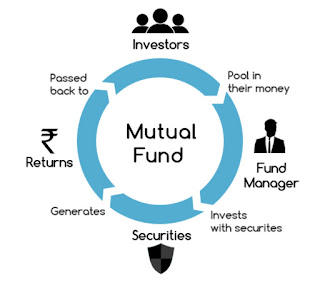MUTUAL FUND SCHEMES BASED ON INVESTMENT OBJECTIVE - tradecareer

MUTUAL FUND SCHEMES BASED ON INVESTMENT OBJECTIVE Income Oriented Mutual Fund: These funds offer a fixed income to investors and it has lower risk as compared to growth funds. Under this scheme, the Asset Management Company invests funds income oriented schemes like Bonds, Debentures, Government Bonds & securities and commercial papers. Features (i) These schemes are generally have lesser risk as compared to Growth schemes. (ii) These schemes give fixed income. Growth oriented Mutual Fund: These funds offer capital appreciation over a period. Under this scheme, the Asset Management Company invests funds in the equity shares which have significant growth potential. Despite good return under this mutual fund scheme, there is no assurance or guarantee of return. In other words, it is a scheme which has high risk and high return. ...











